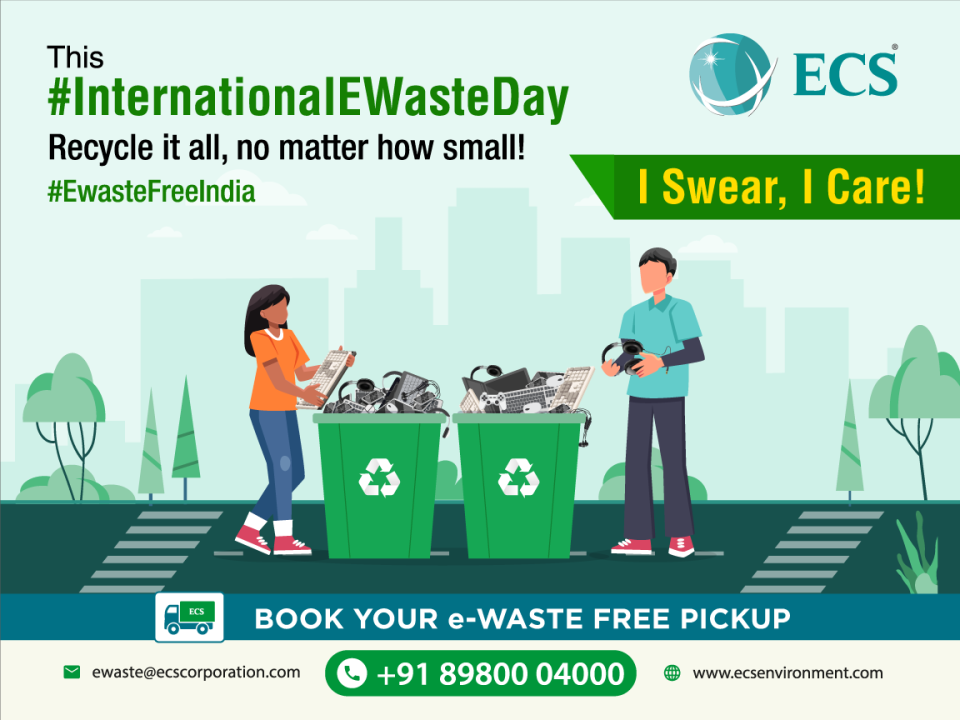Eco-Friendly DIY E-Waste Disposal: Responsible Recycling Guide
In our fast-paced digital age, electronic devices have become an integral part of our lives. From smartphones to laptops and smart home gadgets, the constant evolution of technology leads to an inevitable accumulation of electronic waste, or e-waste. Responsibly disposing of these electronic devices is crucial to prevent environmental harm. This guide explores DIY methods for environmentally conscious e-waste disposal.
Understanding the Impact of E-Waste
Electronic devices often contain hazardous materials such as lead, mercury, and cadmium, posing significant risks to the environment and human health if not disposed of properly. The improper disposal of e-waste can result in these toxic substances leaching into the soil and water, causing pollution and potential harm to ecosystems. Recognizing the impact of e-waste is the first step toward adopting responsible disposal practices.
Assessing Your E-Waste
Before diving into disposal methods, it’s essential to assess your e-waste inventory. Identify devices that are no longer in use, damaged, or outdated. Consider whether any items can be refurbished, repurposed, or donated. Categorizing your e-waste allows for a more strategic and environmentally friendly approach to disposal.
DIY Disassembly and Component Separation
For those inclined towards a hands-on approach, disassembling electronic devices can be an effective method. Separate components such as batteries, circuit boards, and plastics to facilitate proper recycling. Ensure that you follow safety guidelines and, if needed, consult online resources or manufacturer guides for disassembly instructions. This step-by-step process not only aids recycling efforts but also allows for the salvage of reusable components.
Exploring Local E-Waste Recycling Programs
Many communities and municipalities offer e-waste recycling programs, providing a convenient and responsible way to dispose of electronic devices. Research local recycling facilities or collection events that accept e-waste. Some organizations even offer pick-up services, making the process hassle-free for those with large quantities of electronic devices to recycle.
DIY Dispose of E-Waste Responsibly: A Step-by-Step Guide
If local recycling programs are not available or accessible, taking matters into your own hands is still a viable option. Consider creating a DIY disposal plan, including proper packaging and transportation to an authorized e-waste recycling facility. Utilize online resources and guides to ensure compliance with environmental regulations during the disposal process.
Finding Certified E-Waste Recycling Facilities
When opting for professional recycling, choose certified e-waste recycling facilities. These facilities adhere to industry standards and regulations, ensuring that your electronic devices are processed responsibly. Certified recyclers employ environmentally friendly methods to extract valuable materials from e-waste while minimizing the impact on ecosystems.
Supporting E-Waste Legislation and Advocacy
Advocacy for responsible e-waste disposal extends beyond individual actions. Stay informed about e-waste legislation in your region and support initiatives aimed at regulating the proper disposal of electronic devices. By advocating for responsible e-waste management, individuals contribute to the larger goal of creating a sustainable and environmentally conscious society.
Closing the Loop: Sustainable Electronics Consumption
Ultimately, responsible e-waste disposal is part of a broader commitment to sustainable electronics consumption. Consider adopting a mindful approach to purchasing electronic devices, opting for products with longer lifespans, and supporting manufacturers with environmentally friendly practices. By closing the loop on the entire lifecycle of electronic devices, individuals can contribute to a more sustainable and eco-friendly future.
In conclusion, the increasing prevalence of electronic devices underscores the importance of responsible e-waste disposal. By understanding the impact of e-waste, assessing personal inventory, and adopting DIY or professional recycling methods, individuals can play a vital role in minimizing environmental harm. Embracing sustainable practices and supporting e-waste legislation further contributes to a collective effort in building a greener and more environmentally conscious world.
For more information on DIY disposal of e-waste responsibly, visit thietbidinhvithongminh.com.

